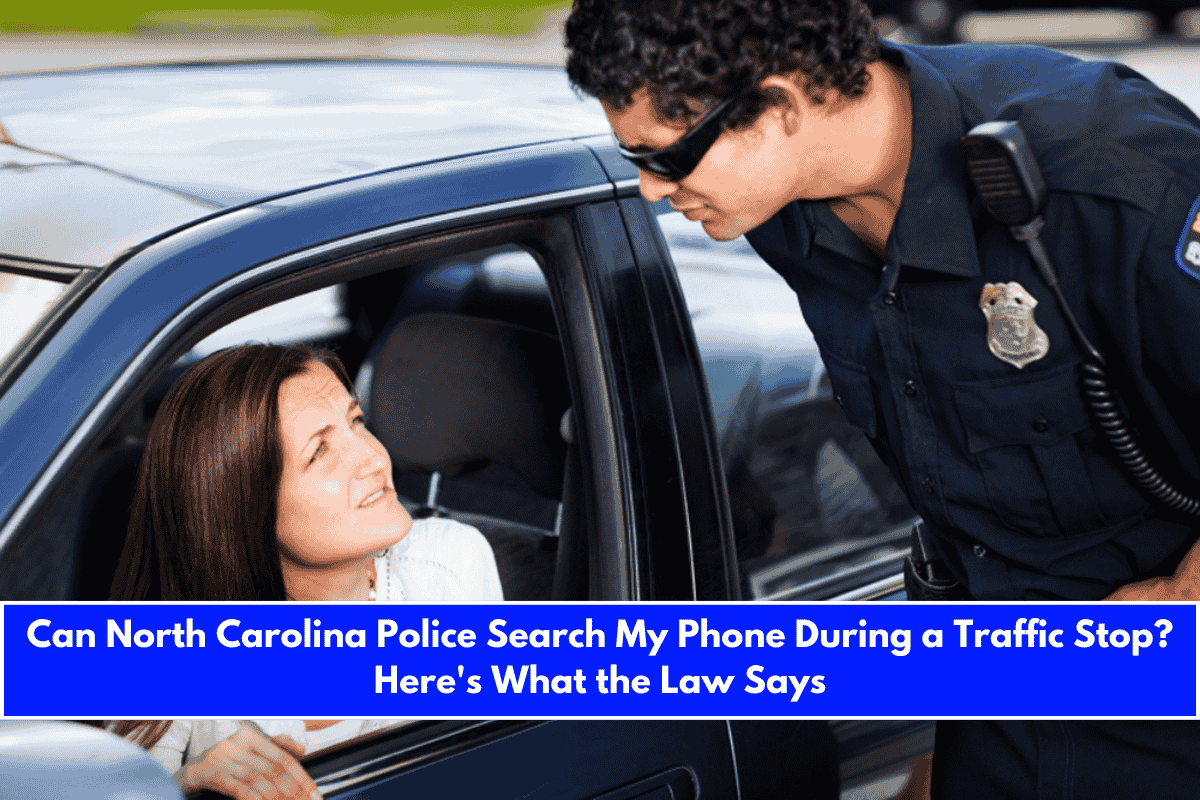In North Carolina, police cannot search your phone during a traffic stop without a warrant or your consent. This protection is rooted in both the U.S. Constitution and recent Supreme Court decisions, and it applies regardless of whether you are simply stopped or under arrest.
The Fourth Amendment and Supreme Court Precedent
The Fourth Amendment to the U.S. Constitution protects individuals against “unreasonable searches and seizures,” meaning law enforcement generally needs a warrant supported by probable cause to search your property, including your cell phone.
This principle was reinforced in the landmark 2014 Supreme Court case Riley v. California, which held that even if you are arrested, police must obtain a warrant to search the contents of your phone.
North Carolina Law
North Carolina law follows this standard closely:
- Warrant Required: Officers must obtain a search warrant to access your phone’s data, even if they lawfully seize the device during a stop or arrest.
- Exceptions: There are a few exceptions to the warrant requirement:
- Consent: If you voluntarily allow officers to search your phone, they do not need a warrant.
- Exigent Circumstances: In rare situations where waiting for a warrant could result in harm, escape, or destruction of evidence, police may search without a warrant.
- Plain View: If evidence is visible on your phone’s screen while it is lawfully in police possession, it may be seized without a warrant.
Unlocking Your Phone
- Passwords: Under the Fifth Amendment, you cannot be forced to provide your phone’s password, as this is considered testimonial evidence.
- Biometrics: The law is less clear regarding fingerprints or facial recognition. Courts have sometimes allowed police to compel unlocking by biometric means if they have a warrant specifically authorizing it.
Your Rights During a Traffic Stop
- You have the right to refuse consent to a phone search. You are not required to hand over your device or unlock it unless police present a valid search warrant.
- You may remain silent and are not obligated to answer questions about your phone’s contents or usage.
What to Do If Asked
If an officer asks to search your phone during a traffic stop:
- Politely decline consent unless they show a warrant.
- Do not unlock your phone or provide your password unless required by a court order.
- If your phone is seized, ask if you are free to leave and seek legal advice as soon as possible.
North Carolina police cannot search your phone during a traffic stop without a warrant or your explicit consent. Your digital privacy is strongly protected, but always be aware of your rights and exercise them respectfully if the situation arises.
Sources:
- https://www.govtech.com/public-safety/can-police-search-your-phone-during-a-traffic-stop
- https://www.carolinaattorneys.com/blog/what-is-required-to-search/
- https://nccriminallaw.sog.unc.edu/can-i-take-a-look-at-your-phone/
- https://www.dickerson-law-firm.com/blog/2025/04/search-warrant-requirements-in-north-carolina/
- https://www.garrettandwalker.com/can-police-force-you-to-unlock-your-phone-in-nc/











Leave a Reply